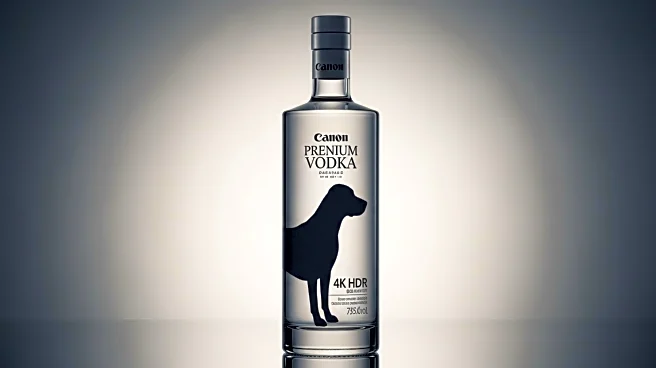What's Happening?
Tito's Vodka, a prominent brand in the spirits industry, has made a strategic marketing decision to align itself with dog owners rather than cat owners. This decision was influenced by a conversation between Tito's marketing manager and Tito himself, metaphorically described as meeting 'the devil at the crossroads.' The marketing manager presented Tito with a choice, emphasizing the need to cater to either dog people or cat people, but not both. Tito chose to market his vodka as a brand for dog people, thereby distancing the brand from cat owners. This choice reflects a broader marketing strategy that seeks to create a distinct brand identity and appeal to a specific demographic. Tito's Vodka is recognized globally, akin to the stature of sports legends like Michael Jordan and Muhammad Ali, and is available in international markets such as Kinshasa, the capital of the Democratic Republic of Congo.
Why It's Important?
The decision by Tito's Vodka to focus on dog owners highlights the importance of targeted marketing strategies in the competitive spirits industry. By choosing a specific demographic, Tito's aims to strengthen its brand identity and foster loyalty among dog owners, potentially increasing its market share within this group. This move could influence other brands to adopt similar strategies, emphasizing the need for clear brand differentiation in a crowded market. The choice also reflects broader trends in consumer behavior, where brands increasingly seek to connect with customers on a personal level, aligning with their lifestyles and preferences. This strategy may lead to increased sales and brand recognition, benefiting Tito's financially and enhancing its reputation as a leading vodka brand.
What's Next?
Tito's Vodka may continue to develop marketing campaigns that further emphasize its connection to dog owners, potentially sponsoring dog-related events or partnering with pet organizations. This could lead to collaborations with influencers or celebrities known for their love of dogs, further solidifying the brand's identity. Additionally, Tito's might explore product innovations or limited editions that appeal specifically to dog owners, enhancing its appeal and driving sales. The brand's decision could prompt reactions from competitors, who may seek to capture the cat owner demographic or explore other niche markets. As Tito's expands its global presence, it may also adapt its marketing strategies to resonate with diverse cultural contexts, ensuring its message remains relevant across different regions.
Beyond the Headlines
The choice to market Tito's Vodka to dog owners over cat owners raises interesting cultural and ethical considerations. It reflects societal perceptions and stereotypes about pet ownership, where dog owners are often seen as more social and active, aligning with the brand's image. This decision may inadvertently reinforce these stereotypes, influencing consumer perceptions and behaviors. Additionally, the strategy highlights the ethical implications of marketing decisions, where brands must balance commercial interests with cultural sensitivity. Tito's approach may also spark discussions about inclusivity in marketing, encouraging brands to consider diverse consumer identities and preferences. As the spirits industry evolves, these considerations will become increasingly important in shaping brand strategies and consumer relationships.











